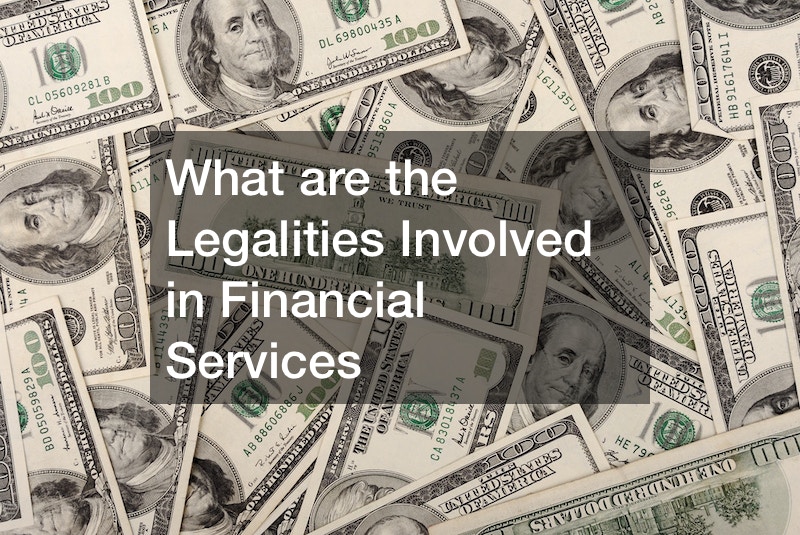In the ever-evolving world of financial services, staying on the right side of the law is crucial. Whether you’re a financial institution or an individual navigating the complex world of personal finance, understanding the legalities involved is vital to your success. In this article, we’ll explore the legal aspects of finance services, the role of commercial lawyers, and the importance of alternative dispute resolution in handling commercial disputes.
The Legal Framework of Financial Services
Finance services encompass a wide range of activities, from banking and investment to insurance and lending. These services are heavily regulated to protect consumers, maintain market stability, and prevent financial misconduct. Understanding the legal framework that governs these activities is essential.
A commercial lawyer, or corporate attorney, plays a significant role in ensuring that finance services providers comply with relevant laws and regulations. These legal experts specialize in commercial transactions, contracts, and regulatory compliance. They work closely with finance services organizations to help them navigate the complex web of financial regulations.
Commercial Lawyers: Guardians of Compliance
Commercial lawyers are akin to the gatekeepers of the finance services world. They assist organizations in drafting and reviewing contracts, ensuring that everyone understands their responsibilities and rights. These lawyers also guide finance service providers in adhering to regulatory requirements and helping them avoid legal pitfalls.
For example, in the realm of lending, commercial lawyers help financial institutions create loan agreements that are legally sound, clear, and fair to borrowers. In investment, they ensure that all investment offerings meet the necessary legal standards, safeguarding investors from potential fraud.
Navigating Commercial Disputes
Despite best efforts, commercial disputes can still arise in the finance services sector. Whether it’s a disagreement between a lender and borrower, an investment dispute, or a contract breach, addressing these issues is crucial. Legal recourse can be a complex and time-consuming process, but it is often necessary to maintain the integrity of financial transactions.
Commercial disputes can be costly for all parties involved. To mitigate these expenses and expedite the resolution process, alternative dispute resolution methods come into play. These methods, like mediation and arbitration, offer a more streamlined and cost-effective way of resolving conflicts.
Alternative Dispute Resolution: A Faster Route to Resolution
Alternative dispute resolution (ADR) is a practical approach to handling commercial disputes. It allows the parties to engage in a more informal and collaborative process to resolve their issues, often without the need for expensive and time-consuming litigation.
Mediation is one common form of ADR where a neutral third party helps the parties in achieving a mutually acceptable solution. Arbitration, on the other hand, involves a third-party arbitrator who then expertly creates a binding decision that is based on the evidence presented by both parties.
Using ADR methods can help finance services providers and their clients resolve disputes quickly and with less emotional strain. It also allows for more flexible solutions, as the parties have greater control over the outcome compared to a court proceeding.
The Evolving Legal Landscape
The legalities involved in finance services are not static. They continually evolve to adapt to the ever-changing financial landscape and to address emerging challenges, such as cybersecurity and digital currencies.
As the finance services industry continues to embrace technological advancements, regulatory bodies are always working diligently to keep pace with these ongoing changes. Commercial lawyers play a vital role in helping finance services organizations navigate these uncharted waters, ensuring that they remain in compliance with evolving laws and regulations.
Navigate the Financial Services Landscape With Ease
In the world of financial services, staying on the right side of the law is a priority for both providers and consumers. Understanding the legal framework, the role of commercial lawyers, and the benefits of alternative dispute resolution is essential for all stakeholders.
Commercial lawyers act as guardians of compliance, guiding finance services organizations through a complex maze of regulations. When commercial disputes inevitably arise, alternative dispute resolution methods offer a quicker and more cost-effective means of resolution.
As the financial landscape evolve, staying informed about the legalities involved in finance services is crucial. It’s a dynamic world where knowledge of the law and the expertise of commercial lawyers can make all the difference. So, whether you’re managing a finance services organization or seeking financial assistance, be sure to have the assistance of experts like Judge Sue Robinson



